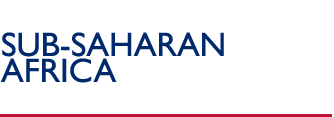Liberia
Overview
Peaceful elections held in October and November 2005 and the inaugura-tion of the first female Head of State in Africa in January 2006, ushered in a period of hope and high expectations for recovery and development after decades of poor governance and destabilization. The consequences of 14 years of brutal conflict constitute huge challenges to Liberia's recovery, reform, and rebuilding process. The government of Liberia, with the aid of international partners-of which the United States is the largest bilateral donor-is slowly restoring public confidence in political, social, economic, and judicial institutions while addressing the regional disparity and bad governance that contributed to the conflict.
Programs
Community Revitalization And Reintegration
Working across nearly all 15 counties of Liberia to aid the transition from relief to development, USAID has helped communities create economic opportunities to reintegrate internally displaced people, ex-combatants, and the general population affected by the war. Other U.S. government assistance supports the development and training of new military and ci-vilian police forces.
Governing Justly And Democratically
USAID provided support for the 2005 presidential and legislative elections, and continued support for political party development, electoral systems, and preparations for local and municipal by-elections is helping to build a more representative and competitive multi-party system. Civil society or-ganizations receive support to increase their public advocacy activities related to elections, corruption, conflict mitigation, and human rights. Through the Governance and Economic Management Assistance Program (GEMAP), USAID helps create the necessary policy conditions for the economy to grow.
Economic Growth: Agriculture, Energy, And Infrastructure To Reintegrate Communities
Liberia's agriculture sector, including forestry, is critical to the economic development of the country and provides livelihoods to some 70 percent of the population. The USAID program focuses on conservation of protected areas; the rehabilitation of smallholder tree crop farms of rubber, cocoa, and oil palm; livestock provision; and training in business and marketing skills including micro-credit and small enterprise initiatives. PL480 Title II Food for Peace funds provide a non-emergency food aid program for vulnerable groups and school children at risk of dropping out of school.
In cooperation with the USDA Forest Service, USAID is providing support to improve policies on natural resource management and increasing the transparent and legitimate use, ownership, and commercialization of timber, mineral, fisheries resources and the protection of Liberia's unique biodiversity.
USAID supports an Emergency Power Program to extend electricity to sections of the capital city and longer term power generation throughout the country.
Investing In People: Education
Decades of poor governance and civil war devastated Liberia's formal public education system and created a tremendous need for informal, accelerated learning opportunities for ex-combatant and noncombatant youth and young adults. Major investments in education, including assistance from the U.S. President's Africa Education Initiative and International Education Initiative, are increasing school enrollments and improving the quality of education through sector planning and restruc-turing, teacher training, and the provision of needed equipment, material, and infrastructure rehabilitation. Starting this year, USAID will work with universities to help them become more effective higher learning institutions. USAID also supports adult vocational training, as many profes-sionals have not benefited from advanced training and skills development in more than 15 years.
Investing In People: Health
Devastated health facilities and a diminished health care workforce are major challenges to the Government of Liberia in providing basic health care services. Women and newborns are at particular risk due to high fertility, malaria, HIV/AIDS, poor sanitation and hygiene, and lack of safe birthing services. USAID is supporting public and nongovernmental providers to deliver a basic package of essential health services to under-served areas of the country. Other USAID health sector support contributes to national health planning, training of health professionals, and refurbishing facilities. Due to the high incidence of malaria, Liberia is a focus country for the U.S. President's Malaria Initiative.
Back to Top ^
|


